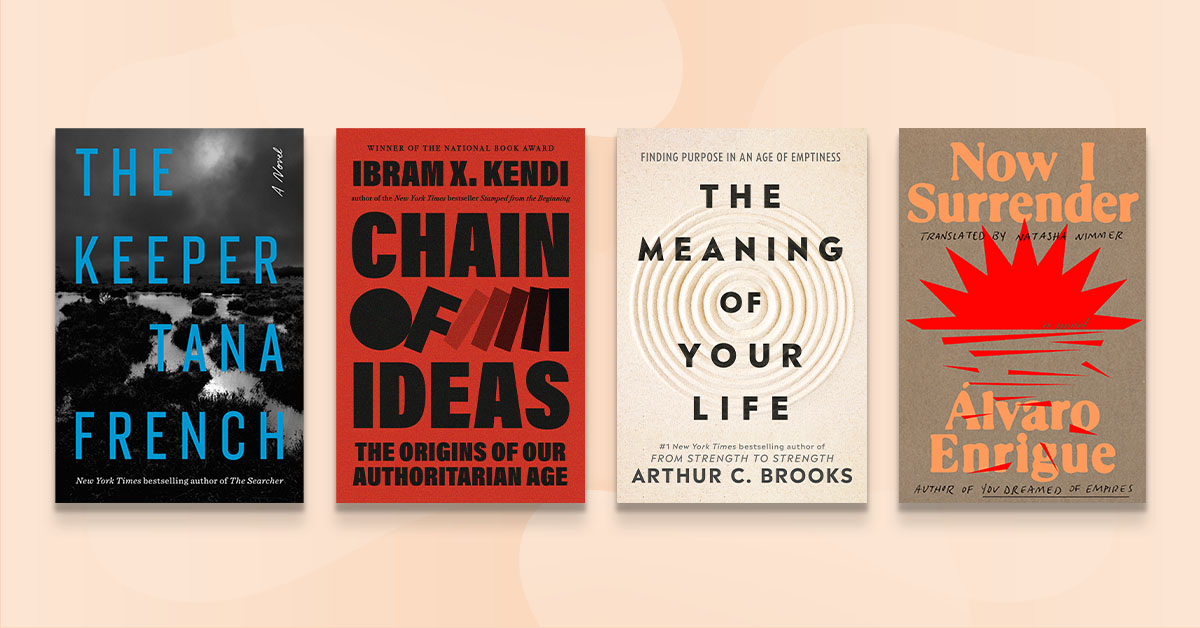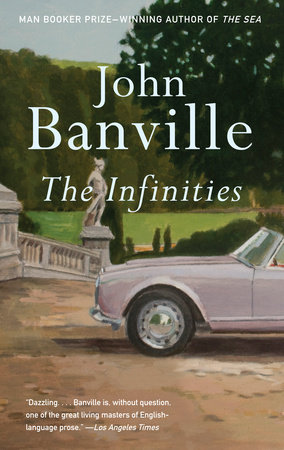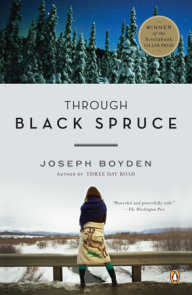READERS GUIDE
The introduction, discussion questions, and suggestions for further reading that follow are designed to enhance your group’s discussion of Booker Prize winner John Banville’s remarkable new novel, The Infinities.Introduction
We tend to think of lustful, vindictive, mischievous gods meddling in human affairs as a phenomenon confined to Homeric poems and Greek myths. But in John Banville’s The Infinities, Zeus, Hermes, and Pan are alive and well and keenly interested in mortal matters. They show up at the home of the Godleys in the Irish countryside to complicate an already complicated situation.As the novel begins, acclaimed theoretical mathematician Adam Godley has suffered a massive stroke and lies unconscious, near death. The family has gathered to be with the dying patriarch—son Adam, anxiously clinging to his beautiful wife, Helen; daughter Petra, morbidly obsessed cataloger of human illnesses; and alcoholic second wife Ursula. The family is supplemented by Petra’s humorless, self-important boyfriend Roddy Wagstaff, and Adam Sr.’s friend and colleague Benny Grace (inhabited by the lecherous and panic-inducing Pan). The action is narrated by Hermes, the deity charged with, among other things, ushering souls into the afterlife, and his wry commentary on both human and divine behavior is one of the novel’s chief pleasures.
Hermes observes that humans can survive only because they have defective imaginations. “The inability of mortals to imagine things as they truly are is what allows them to live, since one momentary, unresisted glimpse of the world’s totality of suffering would annihilate them on the spot, like a whiff of the most lethal sewer gas” (p. 35). And it is this limited perspective, or willful ignorance, that accounts for much of the novel’s comic discrepancies. The characters stumble along in a kind of semiblindness that is fully illuminated by Hermes’s omniscience. Their concealed motives, hidden fears, and tangled strategies for managing their anxieties are all laid bare as the family orbits around the comatose Adam.
The novel is loosely based on the myth of Amphitryon, a Theban general whose wife, Alcmene, is seduced by Zeus while her husband is at war. In The Infinities, Zeus ravishes the younger Adam’s wife, Helen, who happens to be playing the part of Alcmene in an upcoming production of Amphitryon. The god assumes the form of Helen’s husband and demands that Hermes hold back the dawn to permit the dalliance. Pan attempts a similar feat, with less successful, though more humorous, results.
Questions and Topics for Discussion
1. Why has John Banville chosen The Infinities as his title? In what ways is the novel about time and timelessness?
2. Many novels have been written about illness and death in a family. What makes The Infinities’ treatment of this situation so innovative? What truths about family life does the novel uncover?
3. The Infinities takes off from an imaginatively daring premise—not that the Greek gods have returned to intervene in human affairs, but that they never left. How does Banville manage to make this premise believable and enjoyable?
4. Hermes observes: “I listened to the medleyed buzz that summer makes, and thought how tentative these humans are, how they grope and fumble among their motives, hiding their desires, their hopes and trepidations from each other and themselves, perennial children that they are” (pp. 78–79). In what ways is this observation true of the characters in the novel? Is it an accurate assessment of how humans generally behave?
5. What draws the gods to the human world? How do they regard the predicaments of their earthly creations?
6. Death is an agonizing prospect for humans, but for the gods just the opposite is true—they are haunted by their deathlessness. What tensions are created in the novel through these opposing perspectives? What does the novel as a whole seem to say about death?
7. Rex the dog feels that humans “are afraid of something, something that is always there though they pretend it is not. . . . And when they weep, their sobs and lamentations are disproportionate, as though what is supposed to have upset them is just a pretext and their anguish springs really from this other frightful thing that they know and are trying to ignore” (p. 181). What is this frightful thing? Why would Banville choose to view this mystery from Rex’s perspective?
8. Do the gods create tensions among the humans gathered at the Godleys’ house or simply manipulate tensions that are already present?
9. The elder Adam ruminates about love and thinks that “to love properly and in earnest one would have to do it anonymously or at least in an undeclared fashion, so as not to seem to ask anything in return, since asking and getting are the antithesis of love” (p. 209). What unacknowledged irony is present in this observation?
10. How does the arrival of Pan, in the form of Benny Grace, complicate the plot of the novel?
11. Near the end of the novel, Hermes observes: “This is the mortal world. It is a world where nothing is lost, where all is accounted for while yet the mystery of things is preserved; a world where they may live, however briefly, however tenuously, in the failing evening of the self, solitary and at the same time together somehow here in this place, dying as they may be and yet fixed forever in a luminous, unending instant” (p. 272). What is it that lifts this passage toward the register of great poetry? How can its apparent contradictions—solitary and together, dying and yet forever fixed, unending and instant—be understood?
12. The Infinities is a mostly comic novel. What are its most humorous scenes? What are some of its more poignant moments?
13. Adam’s scientific work centers around time and the interpenetration of multiple worlds. How does the novel itself explore the idea of time and the overlapping of different realities?
14. Why does Banville choose to end The Infinities with Hermes intimating to Adam that his wife Helen is “with child”? In what ways is this a satisfying and fitting ending to the novel?
(For a complete list of available reading group guides, and to sign up for the Reading Group Center e-newsletter, visit www.readinggroupcenter.com.)





















